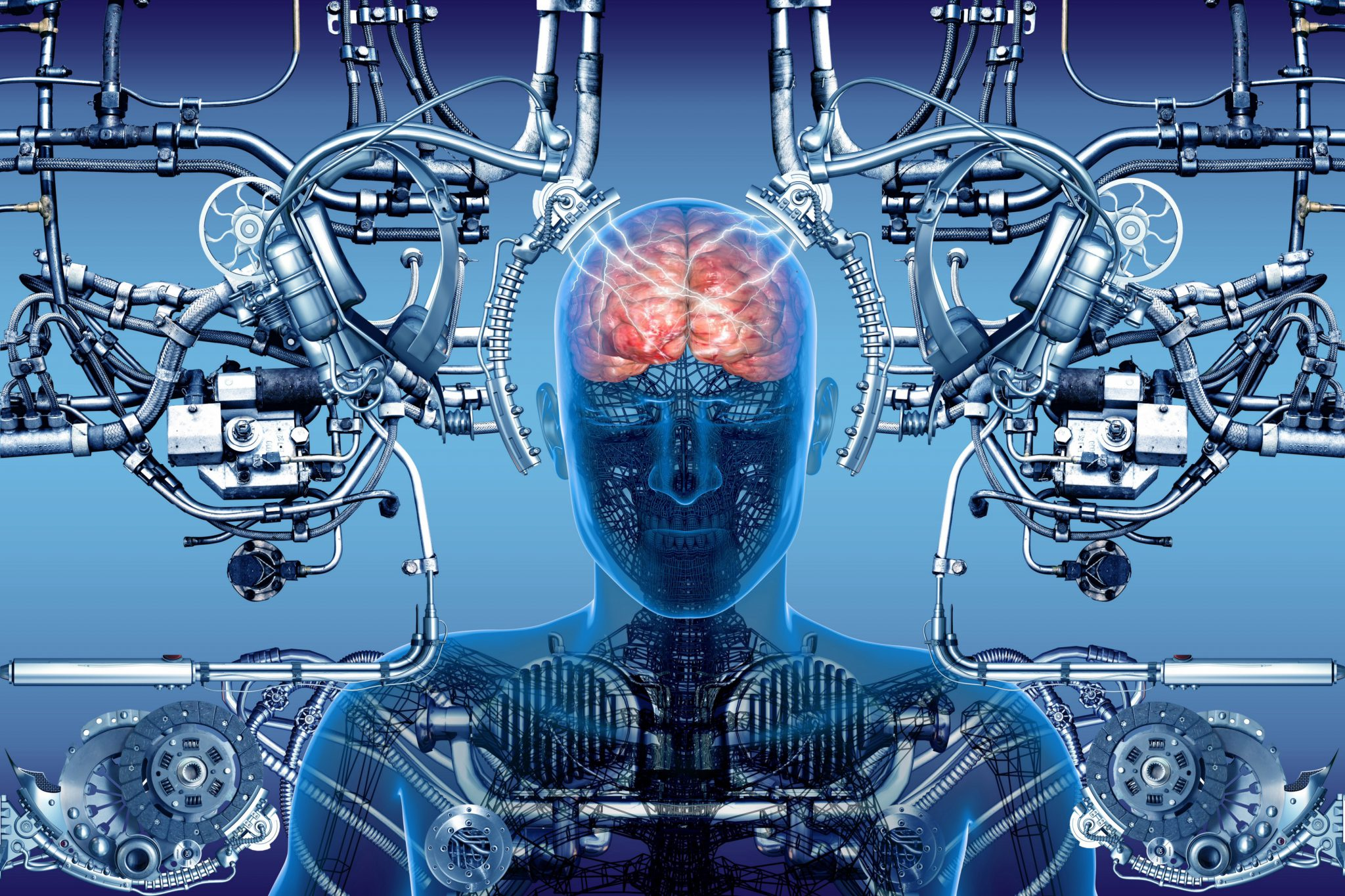Brain-computer interfaces (BCIs) are revolutionizing the landscape of technology-assisted communication and control, marking a transformative leap in how humans can interact with machines. With significant advancements coming from companies like Neuralink, which recently made headlines for successfully implanting a brain chip in a paralyzed patient, the potential of this mind control technology is being realized like never before. These innovative devices promise not only to restore mobility to individuals with disabilities but also to translate thoughts directly into digital actions, fundamentally altering our understanding of autonomy and interaction. However, the ethical implications of BCIs cannot be ignored, especially when considering the historical context of human rights and technology. As society stands on the brink of this new frontier, it is essential to navigate the challenges and possibilities presented by BCI technology with caution.
Neurotechnology that connects the brain to computers, often referred to as mind-machine interfaces, is at the forefront of scientific research. This emerging field encompasses devices designed to decode and interpret neural signals, offering hope for treating various neurological conditions and enhancing cognitive functions. Recent innovations, including brain implants developed by leading companies, highlight not only the excitement surrounding these advancements but also the pressing ethical considerations they raise. The intersection of human rights and technology is crucial as we explore the ramifications of deploying such powerful tools. As these technologies evolve, they invite a broader conversation about consent, privacy, and the responsibility that comes with wielding such capabilities.
Understanding Brain-Computer Interfaces: A New Frontier in Neurotechnology
Brain-computer interfaces (BCIs) represent a groundbreaking advancement in neurotechnology, capable of bridging the gap between the human brain and external devices. With the integration of cutting-edge advancements from companies like Neuralink, the potential of controlling computers, prosthetic limbs, and even communications through thought becomes increasingly feasible. This intersection of technology and biology not only paves the way for enhanced quality of life for individuals with disabilities but also opens discussions on the ethical boundaries of using such invasive technologies.
Despite the immense benefits promised by BCI technology, there are significant considerations that must be addressed. It remains imperative to navigate the balance between innovation and human rights, particularly concerning informed consent and mental privacy. The implications of integrating mind control technology into everyday life necessitate a thorough understanding of both its capabilities and its limitations to mitigate potential misuse and protect individual freedoms.
The Ethical Implications of BCI Technology on Society
As brain-computer interfaces evolve, the ethical implications surrounding their use have garnered increasing attention from scholars and ethicists alike. The legacy of unethical experiments, such as the CIA’s MKUltra program, serves as a stark reminder of the potential for misuse inherent in mind control technologies. Today’s advancements in neural interfacing bring forth not only the promise of enhanced abilities for those with disabilities but also the concern that governments or corporations could use these technologies for surveillance or behavioral manipulation under the guise of improvement.
Conversations about human rights and technology are becoming ever more urgent as society grapples with the challenging question of whether the end justifies the means. The prospect of decoding human thoughts or altering behaviors creates a chilling scenario where individual autonomy may be at risk. Ethical frameworks need to be established to govern the development and application of BCI technology to ensure that innovation does not come at the cost of personal freedoms and dignity.
Neuralink and the Future of Cognitive Enhancement
Neuralink’s brain chip technology embodies the forefront of potential cognitive enhancement. By enabling users to control devices directly with their thoughts, this BCI could revolutionize how people with neurological disorders interact with their environments. Innovations in this space suggest not just therapeutic applications, but also enhancements that could enhance memory, improve cognitive function, and potentially reshape how humans learn and communicate.
However, as we stand on the precipice of such transformative technology, we must tread carefully. The allure of cognitive enhancement must be balanced by an understanding of the risks involved—especially regarding consent and the potential for inequality in access to such technologies. As advancements continue, the conversation surrounding cognitive enhancement should focus not only on the scientific possibilities but also on the ethical responsibilities that come with them.
The Role of Government in Regulating BCI Technology
With emerging technologies such as brain-computer interfaces, the role of government in regulation becomes paramount. While the advancement of BCI technology offers substantial benefits, it is equally crucial to institute safeguards that protect citizens from potential abuses related to mental privacy and behavioral manipulation. Regulatory frameworks need to ensure that these technologies are developed and used ethically, considering both their medical applications and the broader social implications.
Governments must also engage with technology experts, ethicists, and the public to craft these regulations, promoting transparency in research and development. As BCIs mature, proactive governmental oversight will be essential in preventing misuse and ensuring that advancements serve the greater good, rather than perpetuating inequity or jeopardizing civil liberties.
Potential Benefits of BCIs for Individuals with Disabilities
The primary promise of brain-computer interfaces lies in their potential to significantly improve the lives of individuals with disabilities. By allowing users to control devices through thought alone, BCIs can empower individuals with paralysis or severe mobility impairments to regain some level of independence. In clinical settings, this technology is being explored to help patients not only control prosthetic limbs but also communicate more effectively with caregivers and loved ones, potentially freeing them from the constraints imposed by their conditions.
Beyond immediate therapeutic applications, the development of BCI technology could lead to groundbreaking strategies for rehabilitation. Enabling individuals to interact with their environment or express their thoughts could fundamentally change the narrative around disability, shifting societal perceptions and fostering greater inclusivity. However, the journey toward realizing these benefits must prioritize ethical standards and user consent to ensure that technology enhances human dignity rather than diminishing it.
Lessons from History: The Warning of MKUltra
The dark history of MKUltra provides a cautionary tale for the development of modern BCIs. This controversial program, intended to explore mind control through psychological manipulation, resulted in significant moral violations and the exploitation of vulnerable individuals. As neural interfaces begin to blur the lines between natural cognition and engineered manipulation, it is crucial to reflect on past mistakes and enforce stringent ethical standards in neurotechnology research.
These historical lessons emphasize the need to prioritize consent and ethical treatment within the evolving landscape of brain-computer interfaces. The experiences of MKUltra raise critical questions about who controls the data generated from BCIs and who has the authority to interpret or utilize that information. Maintaining vigilance against such abuses will be essential as we navigate the future of neurotechnology.
Exploring Neuralink’s Potential and Limitations
Neuralink’s brain chip represents both the future and the frontier of neural interfaces. While the implications of this technology are undeniably promising—from offering mobility to those incapacitated to enhancing real-time communication—limitations in technology must also be critically examined. Concerns surrounding data security, user consent, and the long-term effects of such implants highlight the need for ongoing research and discussion in the field of neuroethics.
The journey of BCIs, exemplified by Neuralink, invites both excitement and trepidation. As dependencies on these systems grow, understanding their limitations will be crucial for users to navigate their interactions responsibly. Striking a balance between benefitting from the advancements and guarding against potential risks requires a robust dialogue among researchers, ethicists, policymakers, and the public.
Human Rights and the Ethics of Mind Control Technology
As BCI technology progresses into more sophisticated realms, the ethical implications surrounding mind control technology come under scrutiny. With the capabilities to influence thoughts and behaviors, there is an urgent need to assess how these technologies align with human rights. As governments and corporations explore mind control avenues, safeguards must be enacted to prevent infringements on individual autonomy and to uphold the sanctity of personal mental privacy.
A proactive approach to human rights considerations in BCI deployment is essential. This involves establishing ethical frameworks that encompass privacy protections, informed consent, and the prevention of coercive usage. Discussions on these topics must be at the forefront as technology continues to advance, ensuring that society reaps the benefits without sacrificing fundamental human values.
Technological Innovations: A Double-Edged Sword
The technological innovations presented by brain-computer interfaces serve as a double-edged sword. On one side, the potential for positive societal impact is immense, particularly in healthcare advancements aimed at improving the quality of life for countless individuals. However, this advancement comes with risks inherent to invasive technologies, raising significant ethical concerns about privacy, consent, and the potential for misuse.
As we embrace the possibilities that BCIs offer, we must remain critically aware of the implications that accompany these innovations. Dialogue around the ethical use of technology and stringent regulations must develop concurrently to ensure these advancements contribute positively to society without compromising ethical standards.
Frequently Asked Questions
What are brain-computer interfaces (BCIs) and how do they work?
Brain-computer interfaces (BCIs) are advanced neurotechnology systems that enable direct communication between the brain and external devices. They work by translating neural signals into commands, allowing individuals, especially those with physical disabilities, to control computers, prosthetic limbs, or other technologies using their thoughts.
What is Neuralink and how does it relate to brain-computer interfaces?
Neuralink is a neurotechnology company founded by Elon Musk that focuses on developing brain-computer interfaces (BCIs). Its goal is to create devices capable of implanting brain chips to enhance cognitive abilities and improve the quality of life for individuals with neurological disorders.
What ethical implications surround the development of BCI technology?
The ethical implications of brain-computer interfaces (BCIs) include concerns over mental privacy, consent, and the potential for misuse in manipulating thoughts or behaviors. Experts caution that, if not regulated, BCIs could lead to scenarios reminiscent of past abuses seen in mind control experiments.
How can BCI technology assist people with disabilities?
BCI technology holds promise for individuals with disabilities by allowing them to control devices such as computers and prosthetic limbs using just their thoughts, which can significantly enhance their independence and quality of life.
What are the potential risks of using the Neuralink brain chip?
The Neuralink brain chip, while groundbreaking, poses risks such as surgical complications, long-term health effects, and concerns regarding unauthorized access to personal thoughts, raising significant questions about mental privacy and autonomy.
What market potential exists for brain-computer interfaces in the U.S.?
The market potential for brain-computer interfaces (BCIs) in the U.S. is estimated to reach around $400 billion, given the millions of individuals affected by conditions like spinal cord injuries and strokes who could benefit from these technologies.
How do BCIs relate to human rights and technology discussions?
Brain-computer interfaces (BCIs) are increasingly relevant in human rights discussions, as their development raises important questions about personal freedom, autonomy, and the potential for misuse in surveillance or coercive practices.
In what ways could mind control technology evolve with BCI advancements?
As brain-computer interface (BCI) technology advances, there are concerns that it could lead to new forms of mind control, enabling the manipulation of thoughts or behaviors without consent, echoing historical abuses seen in unethical experiments.
| Key Point | Description |
|---|---|
| First Brain Chip Implant | On Jan. 28, 2024, Noland Arbaugh received the first brain chip implant from Neuralink, enabling him to control a mouse and play chess using his mind. |
| Potential of BCIs | Brain-computer interfaces (BCIs) hold potential for helping individuals with disabilities control prosthetics or communicate through thoughts. |
| Market Estimation | The BCI market in the U.S. is estimated to reach around $400 billion, driven by numerous cases of spinal injuries and strokes. |
| Cautionary Notes | A discussion paper from the Carr Center suggests historical precedents of potential misuse of BCI technology for manipulation and control. |
| Historical Parallels | Lukas Meier references MKUltra and historical attempts to manipulate behavior, emphasizing the risks associated with advanced technologies today. |
| Ethical Concerns | Existing experimental research raises questions concerning self-determination, consent, and privacy regarding mental processes. |
| Unpredictable Effects | Neural stimulation can unexpectedly alter behavior, highlighting the need for responsible development of BCIs. |
| Continued Development | Despite concerns, Meier advocates for the advancement of BCI technology to stay competitive against global adversaries. |
Summary
Brain-computer interfaces (BCIs) represent a revolutionary leap in neurotechnology, offering transformative opportunities for individuals with disabilities. While the potential benefits are immense, such as enabling control over prosthetic limbs and facilitating communication, there are significant ethical and historical warnings regarding the misuse of these technologies for mind control. As the field develops, it is crucial to navigate the challenges surrounding self-determination, consent, and the implications of altering human cognition and behavior. The history of mind control experiments serves as a stark reminder of the delicate balance required in advancing brain-computer interfaces responsibly.



